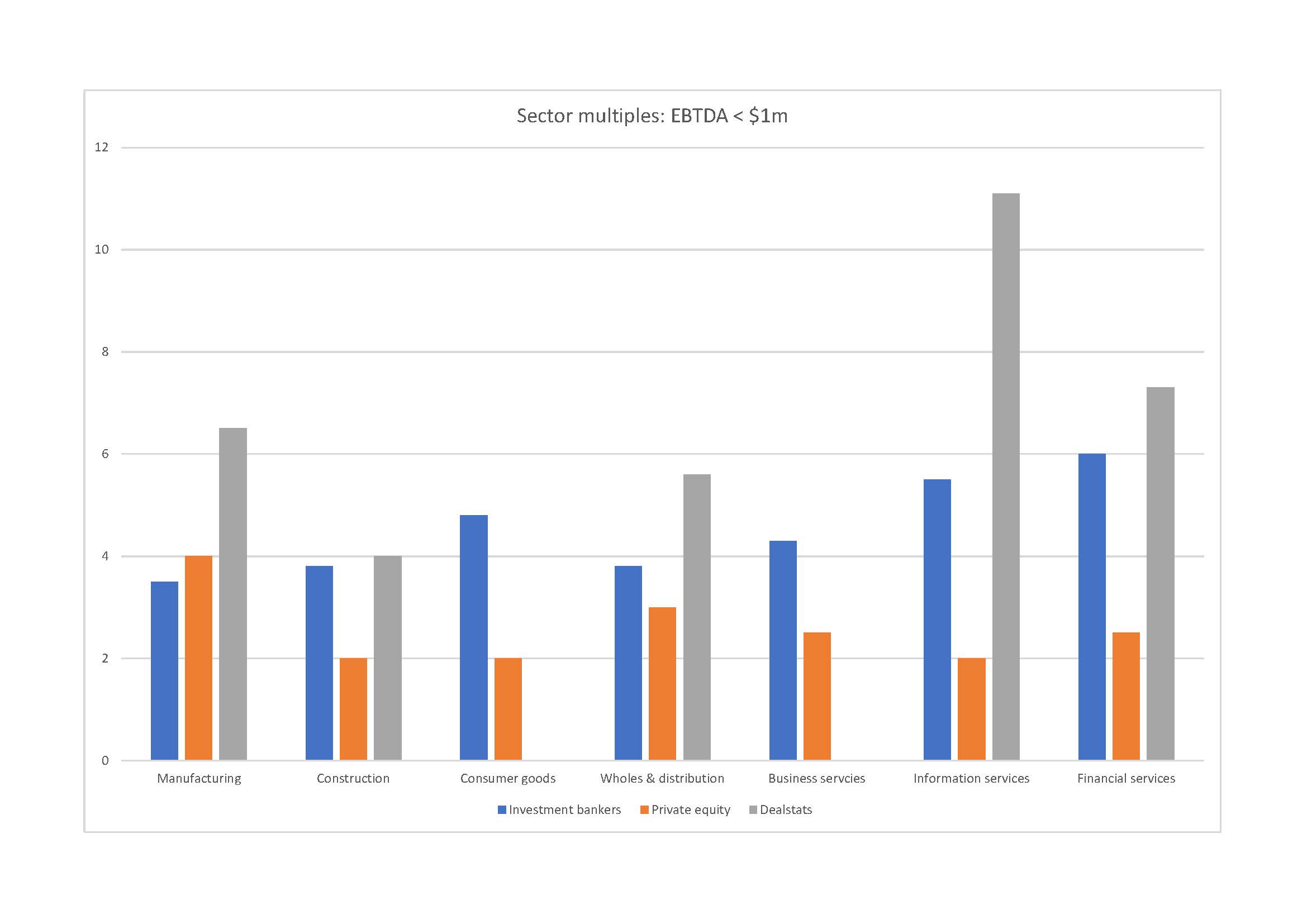The earnings multiple and business valuation
A basic explanation to the earnings multiple, its application to calculating a business value and typical private business earnings multiples.
What is an earnings multiple?
An earnings multiple may be used to provide a guide to the valuation of a business. The relevant earnings base is multiplied by the earnings multiple to arrive at the business valuation.
The earnings multiple reflects the risk attached to future earnings. The lower the deemed risk, the higher the earnings multiple. The higher the considered risk, the lower the earnings multiple. The earnings multiple also reflects the expected growth in future earnings. The higher the projected earnings growth, the lower the earnings multiple.
In adopting an earnings multiple, the business valuer assumes that the earnings base will be earnt in perpetuity. The application of an earnings multiple is the same as capitalising earnings. The earnings multiple reflects the inverse of the capitalisation rate.
Application of an earnings multiple
An earnings multiple approach, requires the use of the appropriate earnings multiple. The business valuer applies an historical EBIT or EBITDA to historical earnings and applies a forward EBIT or EBITDA multiple to forward earnings.
Different multiples value different things. An EBIT or EBITDA multiple provides an enterprise valuation. A P/E multiple provides an equity valuation.
The traded market price of a listed stock, together with historical earnings or forecast earnings, can be used to calculate an earnings multiple. When valuing a private business, a listed company earnings multiple has to be adjusted to reflect factors such as the lack of liquidity in a private business and specific risk, which cannot be diversified away by private investors.
DealStats Value Index
DealStats provide a quarterly private company EBITDA report. The authors derive the multiples from US transactions, as provided by M&A advisors and business intermediaries, over the last 6 to 8 years.
Link to the latest report. The research shows an average selling EBITDA median, across all sectors, of 3.0 times. The accommodation and food services sector has the lowest average multiple at 2.5 times; with retail trade, transportation and construction at slightly higher multiples: 3.7, 3.8 and 4.0 respectively.
Pepperdine Private Capital Report
Pepperdine University publishes an annual report that provides a guide to private company EBITDA multiples. The Pepperdine report derives from a survey of financial professionals, including private equity groups, venture capital firms and business appraisers.
Link to the latest report. The research shows an average earnings multiple across all private company sectors of 4.2 times. The authors derive the analysis from private equity transactions. The construction and engineering sector has the lowest average multiple of 2.5 times; with consumer goods, wholesale and distribution, and business services: 3.7, 4.1 and 4.3 respectively.
Private sector EBITDA multiples
The chart below summarises the EBITDA multiples provided by private equity firms and investments bankers, for private businesses with an EBITDA of less than USD$1 Million. This information is per the Pepperdine Private Capital Report.
The chart also includes observed private company EBITDA transaction multiples, per the DealStats report. These multiples are taken for all private business transactions and so includes sales in businesses with EBITDA’s above $1 million, where EBITDA multiples would be expected to be higher.

The concept of using an earnings multiple method is very easy. The difficulty for the business valuer is identifying a sustainable earnings base and selecting an appropriate multiple, that reflects the risks and growth specific to the business.
Simon is a CA Business Valuation specialist, Chartered Accountant and a Certified Fraud Examiner. Simon specialises in providing valuation services. Prior to founding Lotus Amity, he was a Corporate Finance and Forensic Accounting partner with BDO Australia. Simon provides valuation services in disputes, for raising finance, for restructuring, transactions and for tax purposes.


